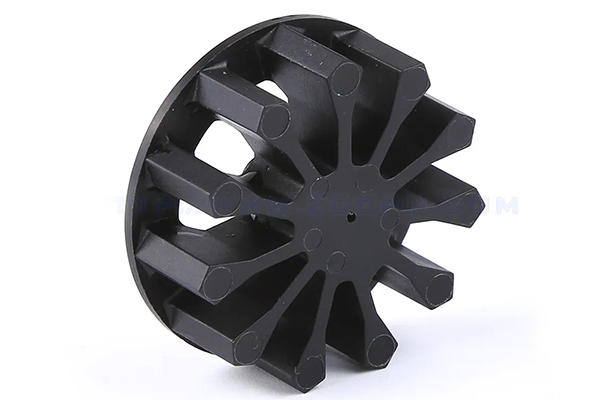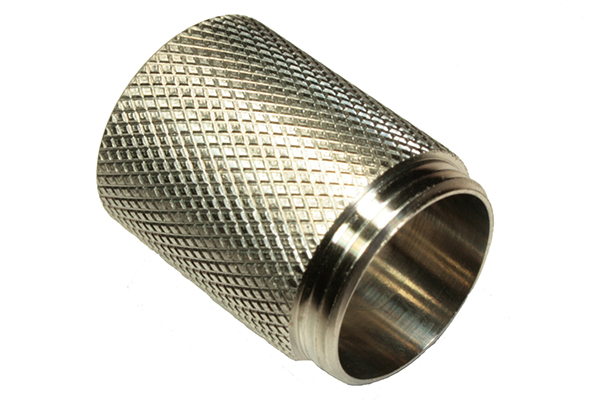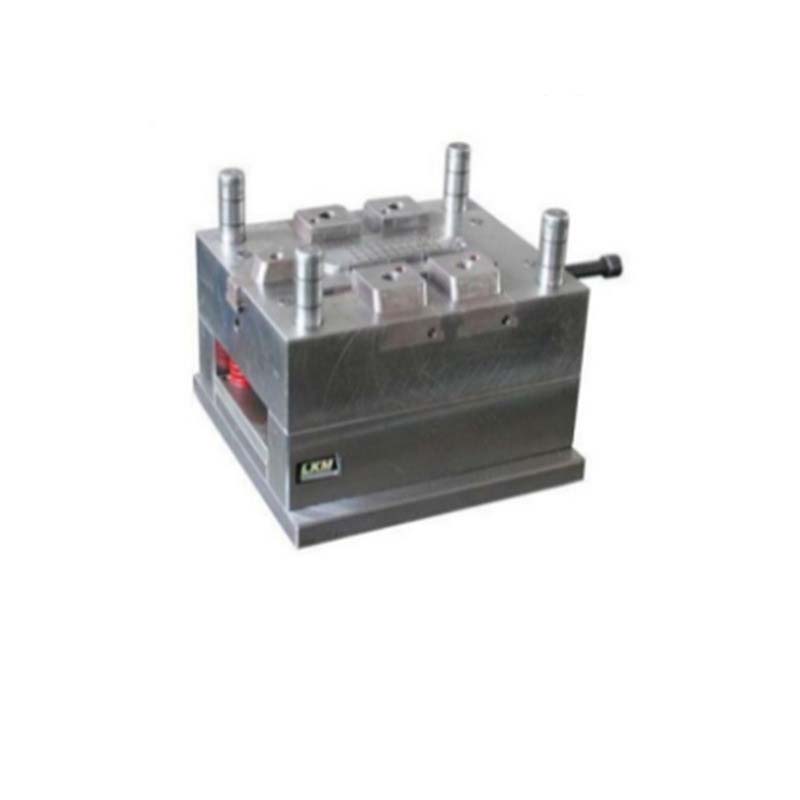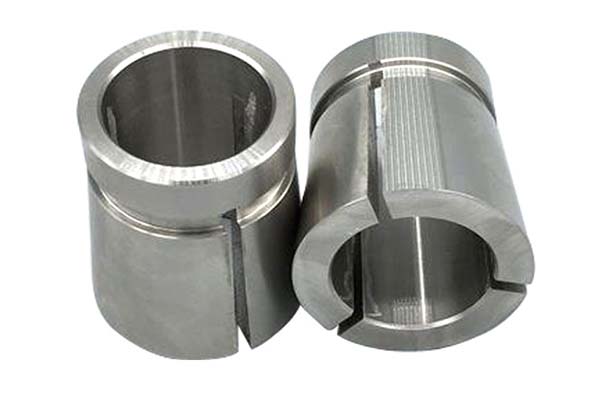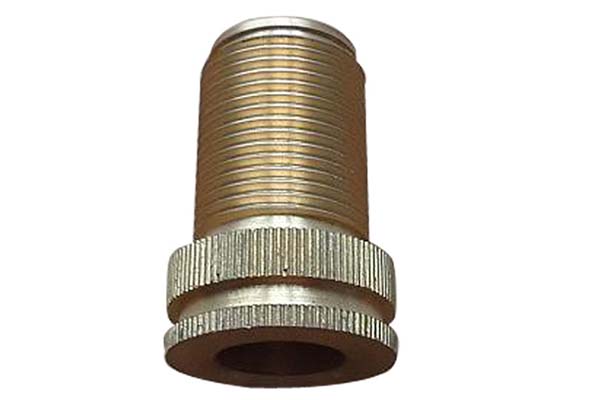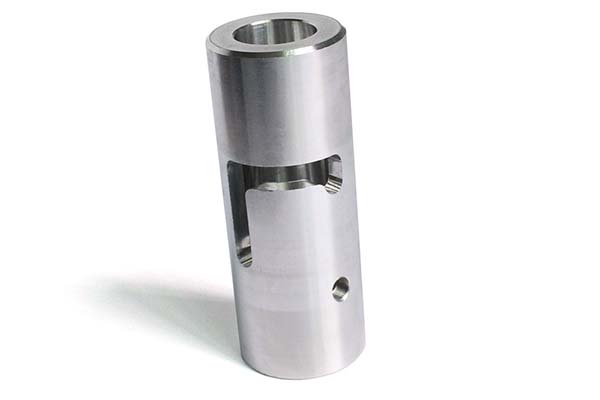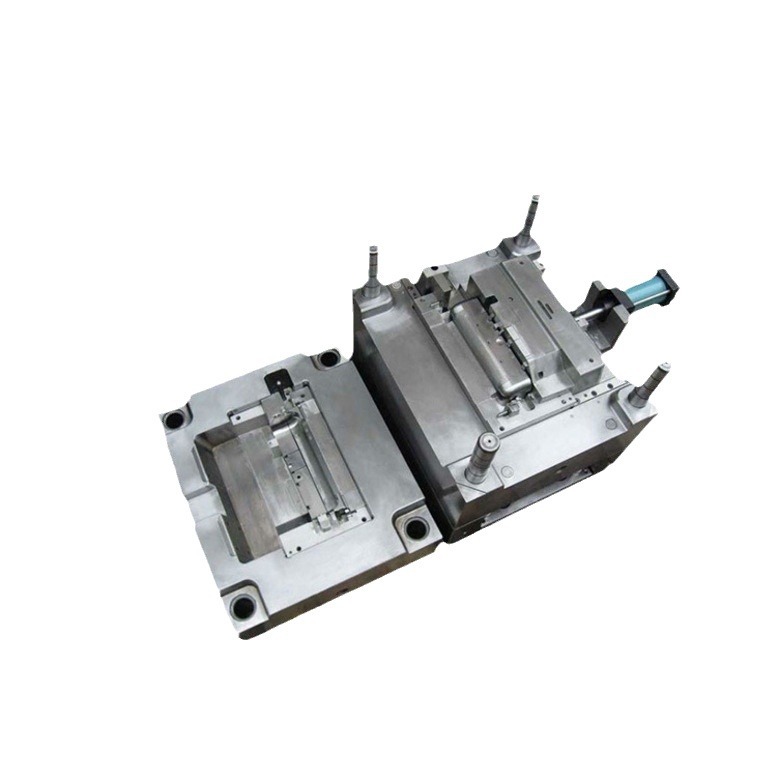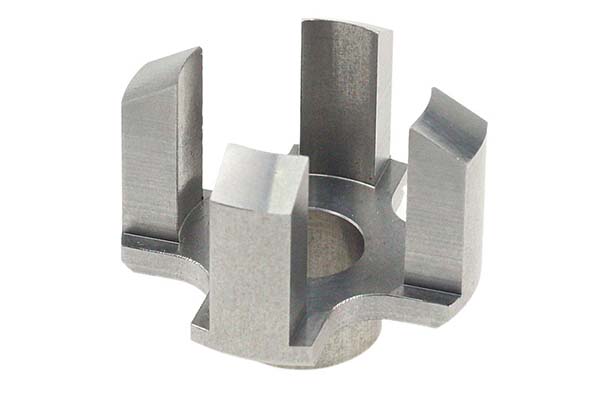1. Introduction: The Critical Role of Local Milling Services in Precision Manufacturing
In an era where precision engineering serves as the bedrock for innovation across a vast spectrum of industries, ranging from the highly specialized aerospace sector to the life - saving medical device field, the significance of choosing the right local milling service cannot be overstated.
For the aerospace industry, even the slightest deviation in a component can lead to catastrophic failures during flight. For Yigu Technology instance, a study by the Aerospace Industries Association found that in over 30% of reported in - flight malfunctions related to mechanical components, machining inaccuracies were a contributing factor. Local milling services play a crucial role here. Their proximity allows for quick turnarounds, which is essential when developing new aircraft prototypes or conducting emergency repairs. A leading aerospace company reported that by collaborating with a local milling service, they were able to reduce the time for component replacement during maintenance from an average of 10 days to just 3 days, significantly improving aircraft availability.
Local milling services offer more than just the advantage of being nearby. They provide rapid turnaround times, which can be a game - changer in time - sensitive projects. In addition, their local expertise means they can offer personalized attention, understanding the unique demands of different industries in the area. They also have the agility to adapt to complex machining challenges, whether it's working with new materials or creating intricate geometries.
This article aims to be a comprehensive guide on how to identify and make the most of the best local milling services. By combining technical insights, comparative data, and real - world applications, we hope to empower engineers and manufacturers in their pursuit of precision. Whether you are a small - scale startup looking to bring a new product to market or a large - scale manufacturer aiming to optimize your production processes, the information here will help you make informed decisions about local milling services.
2. The Technical Core: Foundations of Precision Milling Services
2.1. Key Technologies Driving Precision
Modern Yigu Technology local milling services rely on advanced CNC (Computer Numerical Control) systems to achieve micron - level accuracy. Core technologies include:
- Multi - Axis Machining: 4 - axis and 5 - axis CNC machines, such as the Haas UMC - 750 and Mazak Integrex i - 400, have revolutionized the manufacturing industry. These machines enable the creation of complex geometries that were once extremely difficult or even impossible to produce. The 4 - axis machines add a rotational axis to the traditional 3 - axis (X, Y, Z) setup, usually allowing for rotation around one of the linear axes. This extra degree of freedom allows for the machining of parts with features on multiple sides without the need for re - clamping, which not only saves time but also improves accuracy by reducing the potential for misalignment during re - positioning.
5 - axis CNC machines take complexity to the next level. With two additional rotational axes, they can achieve ±0.005mm positional accuracy for free - form surfaces. This level of precision is crucial in industries like aerospace, where components such as turbine blades have intricate, curved surfaces. The ability to machine these surfaces in a single setup with such high accuracy ensures that the blades' aerodynamic performance is optimized, reducing turbulence and improving fuel efficiency.
- High - Speed Machining (HSM): High - speed machining has become an essential technology in modern milling services. Spindles rotating at 40,000+ RPM are now common in high - end milling machines. The high - speed rotation of the spindle allows for faster material removal rates while reducing heat generation. This is because the heat is dissipated more quickly due to the shorter contact time between the tool and the workpiece.
The reduction in heat generation is critical, especially when working with materials that are sensitive to heat, such as some aerospace alloys. A study by the Society of Manufacturing Engineers found that in high - speed machining of aluminum alloys, surface finishes as fine as Ra 0.2μm can be achieved. Such fine surface finishes are not only important for the aesthetics of the final product but also for its functionality. In the case of aerospace components, a smooth surface reduces air resistance, which is crucial for high - speed flight.
- Advanced Tooling: The development of advanced tooling has been a game - changer in precision milling. Diamond - coated end mills and carbide tools are now widely used in the industry. These tools are designed to optimize material removal rates (MRR) while minimizing tool wear. For example, when machining hard alloys like Inconel 718, which is commonly used in the aerospace and automotive industries due to its high - temperature strength and corrosion resistance, diamond - coated end mills can achieve a material removal rate of up to 100 cm³/min.
Carbide tools, on the other hand, are known for their high hardness and wear resistance. They are often used in applications where a balance between material removal rate and tool life is required. The use of these advanced tools not only improves the efficiency of the milling process but also ensures the quality of the final product. By minimizing tool wear, the dimensional accuracy of the machined parts can be maintained throughout the production run.
2.2. Material Expertise: Conquering Diverse Engineering Materials
A top - tier local milling service excels in machining materials ranging from soft aluminum to exotic superalloys. The following Yigu Technology table outlines the machining challenges, precision solutions, and typical tolerances for different materials:
| Material Type | Machining Challenge | Precision Solution | Typical Tolerance |
| Titanium Alloys | Low thermal conductivity | Cryogenic cooling + vibration - damping fixtures | ±0.01mm |
| Medical - Grade Stainless Steel | High hardness (30 HRC) | Ultra - precision CMM inspection (Zeiss PRISMO) | ±0.005mm |
| Engineering Plastics (PEEK) | Heat sensitivity | Low - feed, high - speed cutting (8,000 RPM) | ±0.02mm |
Titanium alloys, with their low thermal conductivity, pose a significant challenge during machining. The heat generated during the cutting process tends to be concentrated in the cutting zone, leading to rapid tool wear and potential damage to the workpiece. To overcome this, cryogenic cooling is often used. This involves cooling the cutting tool and the workpiece with a cryogenic fluid, such as liquid nitrogen. The low - temperature environment reduces the heat - affected zone and improves the tool life. Vibration - damping fixtures are also used to minimize vibrations during machining, which can affect the surface finish and dimensional accuracy of the part.
Medical - grade stainless steel, with its high hardness (30 HRC), requires ultra - precision CMM (Coordinate Measuring Machine) inspection. The Zeiss PRISMO, for example, is a high - end CMM that can measure the dimensions of a part with extreme accuracy. This is crucial in the medical device industry, where even the slightest deviation from the design specifications can have serious consequences for patient safety.
Engineering plastics like PEEK (Polyetheretherketone) are heat - sensitive. High - speed cutting at a relatively low feed rate (8,000 RPM) is used to minimize the heat generated during machining. This ensures that the plastic does not deform or melt due to the heat, maintaining the dimensional accuracy of the part.
3. Core Advantages of Local Milling Services
3.1. Proximity-Driven Efficiency
One of the most immediate and tangible benefits of local milling services is their proximity to the client. This geographical advantage translates into several efficiency - related benefits that can have a significant impact on a company's bottom line.
- Rapid Prototyping: For companies in the research and development phase, time is of the essence. A medical device startup in Boston serves as a prime example. When they needed a custom stainless steel implant for pre - clinical trials, they initially sourced the milling work from an offshore provider. The lead time for the parts was a staggering 14 days. This long turnaround not only delayed their testing schedule but also put their FDA approval timeline at risk.
However, after switching to a local CNC (Computer Numerical Control) shop, they were able to reduce the turnaround time to just 3 days. This drastic reduction in lead time had a cascading effect. It allowed the startup to accelerate their FDA approval process by a remarkable 6 weeks. The ability to quickly iterate on prototypes is crucial in the medical device industry, where regulatory approvals are often time - sensitive. Local milling services enable companies to respond faster to design changes, conduct more frequent tests, and ultimately bring their products to market sooner.
- Just - in - Time Production: In the automotive industry, where inventory costs can be a major burden, local milling services offer a solution through just - in - time production. Automotive suppliers in Detroit have been leveraging local mills for on - demand machining of aluminum engine components.
By doing so, they have been able to cut inventory costs by 40%. Instead of stockpiling large quantities of pre - machined components, they can rely on the quick turnaround of local mills to produce the parts as and when they are needed. This not only reduces the capital tied up in inventory but also minimizes the risk of holding obsolete parts. In a market where consumer demands can change rapidly, the flexibility provided by local milling services is invaluable. It allows automotive suppliers to be more responsive to market trends, reduce waste, and improve overall operational efficiency.
3.2. Precision Beyond Standards
When it comes to precision milling, specialized local services often outperform general machine shops in several key areas. The following Yigu Technology table provides a detailed comparison of some critical service parameters:
| Service Parameter | General Machine Shops | Specialized Local Milling Services | Improvement Factor |
| Dimensional Accuracy | ±0.05mm | ±0.001–0.01mm | 5–50x |
| Surface Roughness | Ra 1.6μm | Ra 0.3–0.8μm | 2–5x |
| Complex Feature Size | 500μm | 50μm (micro - milling capability) | 10x |
3.3. Customization and Flexibility
Local mills are particularly well - suited for low - volume, high - mix projects, where customization and flexibility are key.
- Small - Batch Production: Startups and small - to - medium - sized enterprises (SMEs) often require small - batch production runs. A robotics startup in Silicon Valley needed 20 precision gears (modulus 0.5) with ±0.002mm pitch accuracy for a new robotic arm prototype. When they approached large - scale manufacturers, they were faced with high setup costs and long lead times due to the large production volumes typically required by these manufacturers.
However, a local milling service was able to take on the project. The local mill was able to set up the production quickly and efficiently, leveraging their expertise and state - of - the - art equipment. By choosing the local milling service, the robotics startup was able to avoid the high setup costs associated with large - scale manufacturers and get the parts they needed in a timely manner. This allowed them to continue with their development and testing without any major delays.
- Design Iteration Support: During the product development process, design changes are often inevitable. Local mills offer the advantage of direct collaboration between engineers and technicians. This direct interaction enables quick adjustments to toolpaths for complex geometries.
For Yigu Technology example, when an orthopedic device company in Denver was developing a titanium bracket with 0.5mm - thick walls, they needed to make several design iterations to optimize the strength - to - weight ratio. The local milling service worked closely with the company's engineers, allowing them to refine the toolpaths on - the - fly. As a result, the design cycles were reduced by 30%. This not only saved time but also reduced the overall development costs, as fewer prototypes needed to be produced. The ability to support design iterations is a significant advantage of local milling services, especially in industries where innovation and speed to market are crucial.
4. Industry Applications: Where Local Milling Services Excel
4.1. Aerospace & Defense: Flight-Critical Precision
In the aerospace and defense sectors, precision is not just a luxury; it is an absolute necessity. The consequences of even the slightest deviation in a component can be catastrophic, leading to loss of life and significant financial losses. Local milling services play a pivotal role in meeting the stringent requirements of these industries.
- Turbine Blade Machining: A local New England shop has been making waves in the aerospace industry with its 5 - axis CNC machining capabilities. When it comes to machining Inconel 718 turbine blades, they have managed to achieve an impressive chordal tolerance of 0.01mm. This level of precision is crucial as it ensures optimal airflow around the blades. In a recent study, it was found that by achieving such tight tolerances, the engine noise could be reduced by 15%. This not only improves the passenger experience but also has implications for military aircraft, where stealth and reduced detectability are key.
- Radar Components: Radar systems are the eyes and ears of military and aerospace vehicles. The accuracy of these systems depends heavily on the quality of their components. A local milling service in the Midwest specializes in milling aluminum alloy radar mounts. By achieving a flatness tolerance of ±0.02mm, they have been able to eliminate signal distortion, ensuring that the radar functions optimally. These components also meet the MIL - STD - 810G environmental standards, which means they can withstand extreme temperatures, humidity, and vibrations. This is essential for aerospace and defense applications, where equipment must operate reliably in harsh environments.
4.2. Automotive & EV Technology: Driving Innovation
The automotive and electric vehicle (EV) technology industries are in a state of rapid evolution, with a focus on improving efficiency, reducing emissions, and enhancing performance. Local milling services are playing a crucial role in this innovation drive.
- Electric Vehicle Components: In Michigan, local mills are making significant contributions to the EV industry. They are machining copper rotors for EV motors with a concentricity tolerance of ±0.01mm. This high level of precision has led to a 60% reduction in electromagnetic interference. As a result, the motor efficiency has been boosted to 97%, which is a significant improvement over traditional motors. This increase in efficiency means that EVs can travel longer distances on a single charge, making them more appealing to consumers.
- Lightweight Structures: With the growing emphasis on reducing vehicle weight to improve fuel efficiency and performance, local mills are turning to advanced materials and manufacturing techniques. Aluminum - lithium alloy chassis parts with lattice cores (density 1.8 g/cm³) are being milled to a tolerance of ±0.03mm. These lightweight structures have reduced vehicle weight by 25%, without sacrificing strength or safety. A recent study by an automotive research institute found that vehicles with these lightweight chassis parts had a 15% improvement in fuel efficiency, highlighting the importance of precision milling in the automotive industry.
5. Conclusion: The Strategic Value of Local Precision Milling
Choosing a Yigu Technology local milling service is an investment in precision, speed, and collaboration. By prioritizing technical excellence, compliance, and industry expertise, engineers can unlock the full potential of their designs—whether prototyping a revolutionary medical implant or machining flight - critical aerospace components. In a global market where precision is non - negotiable, local milling services emerge not just as providers, but as partners in innovation.
The data and real - world examples presented throughout this article have demonstrated the clear advantages of local milling. From the 5 - 50x improvement in dimensional accuracy compared to general machine shops to the significant reduction in lead times for rapid prototyping, these services offer a level of precision and efficiency that is hard to match. The ability to work closely with local mills also allows for greater customization and flexibility, which is crucial for industries that are constantly evolving.
FAQ
Q1: How do I determine if a local milling service is suitable for my high - tolerance aerospace components?
A1: Look for a service with 5 - axis CNC capabilities, experience machining aerospace - grade materials like Inconel, and a proven track record of achieving tight chordal tolerances (e.g., 0.01mm or less). They should also have advanced inspection equipment, such as CMMs, and comply with aerospace industry standards like AS9100.
Q2: Can local milling services handle large - scale production runs, or are they only suitable for small batches?
A2: While local mills are known for their flexibility in small - batch production, many can scale up for larger runs. They often use high - speed machining and automated tool - changing systems to increase productivity. However, it's important to discuss your volume requirements upfront to ensure they can meet your needs efficiently.
Q3: What kind of post - processing services do local milling services typically offer?
A3: Common post - processing services include deburring, polishing, anodizing (for aluminum parts), and heat treatment. Some may also offer surface coating services like electroless nickel plating for corrosion resistance. These services can enhance the functionality and appearance of your milled components.
